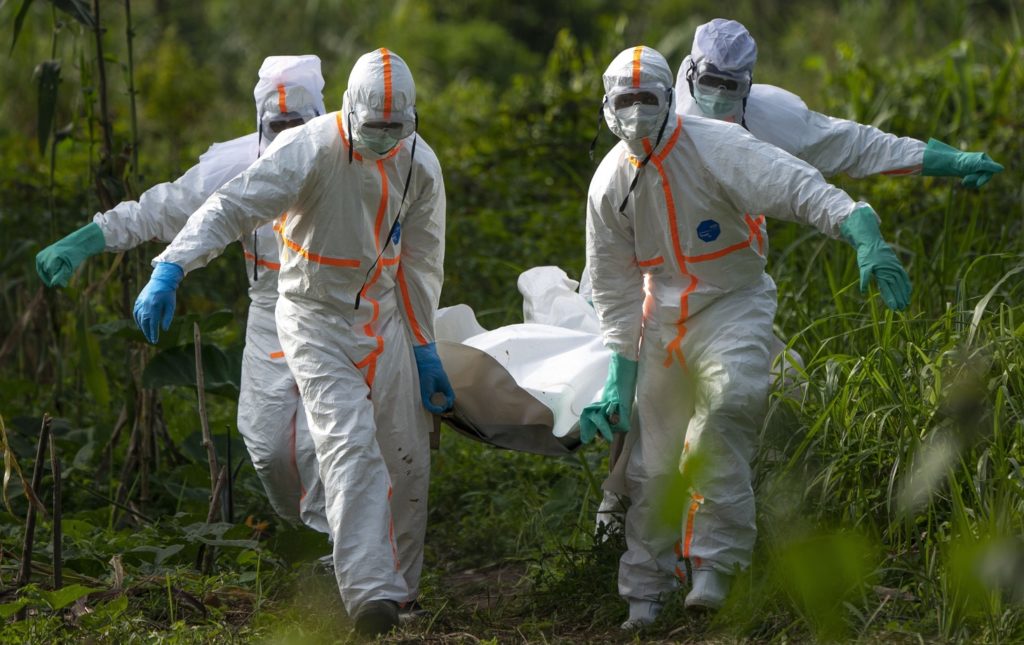A new group called the Global Preparedness Monitoring Board, working under the auspices of the World Health Organization and the World Bank, has released a dire report warning that the world is woefully unprepared for the next global pandemic.
Some highlights (or, lowlights, rather):
- “The world is not prepared for a fast-moving, virulent respiratory pathogen pandemic.”
- In a modern event comparable in scale to the 1918 influenza pandemic, “50-80 million people could perish. In addition to tragic levels of mortality, such a pandemic could cause panic, destabilize national security and seriously impact the global economy and trade.”
- “Preparedness is hampered by the lack of continued political will at all levels.”
- A bioweapon that’s released either deliberately or accidentally is a major danger, because “the consequences could be as severe as, or even greater, than those of a natural epidemic.”
- When something really bad happens, it’s likely to happen in a poorer country, and the poor will be hardest hit by it.
Both The Independent and Foreign Policy have summaries of the report. The latter is especially worth reading because it’s written by Pulitzer Prize winning science reporter Laurie Garrett, who has written a book on this topic. Her outlook is pretty pessimistic, and she concludes that “it will likely take much more than expert reports to mobilize serious collective efforts to prevent and prepare for catastrophe.”
In some regions, basic preparation is impossible
Many of the recommendations in the report depend on the cooperation of local governments in exposed areas — cooperation that’s notoriously hard to get in conflict zones like those where Ebola is currently festering.
For instance, one of the recommendations is: “All countries must develop a system for immediately sharing genome sequences of any new pathogen for public health purposes along with the means to share limited medical countermeasures across countries.”
Yet right now in Tanzania, there is a disease with Ebola-like symptoms that the Tanzanian government is just not sharing clinical data about, and it’s freaking out the WHO:
Several unexplained cases of a disease with Ebola-like symptoms in Tanzania have prompted an extraordinary statement from the World Health Organization questioning the response of the country’s health authorities.
WHO warned that lack of information over the cases, including clinical data, possible contacts and potential laboratory tests performed for differential diagnosis of the patients had not been communicated, leaving it unable to assess the potential risk.
The statement comes hard on the heels of similar remarks by the US health secretary, Alex Azar, last week amid mounting concern that Tanzania may be in breach of its international commitments to share critical data relating to global health security.
We don’t know which of a number of possible viral hemorrhagic diseases is being described here — it could actually be Ebola. And we may not know until it’s already spreading uncontrolled in Tanzania.
Money: the ultimate prep
In most of the scenarios considered in the report, the main difference between who’s in big trouble and who can probably shrug it off is money. This is true both across countries and within them.
The projected impact on the US and other wealthy countries is significant but not catastrophic — on the order of a 0.5% hit to GDP, per the report. This would be bad, but we could certainly handle it. Less developed nations, with fewer medical and financial resources, would be far harder hit, both in terms of the economic impact and the death toll.
Locally within the US population, it’s the same story but on a smaller scale — the well off are far better positioned to survive with minimal impact. That’s because the number one pandemic prep for US residents is a cash cushion that you can fall back on if you need to miss work for a bit in order to avoid the disease. Having the flexibility that cash affords — and accrued vacation days, if you can get them — will let you greatly reduce your risk of exposure to whatever’s going around.
Even if you work from home and aren’t directly exposed, you still may need to take time off to care for a sick family member, stock up on supplies, or look after kids who are staying home from school.
The report’s attention to the link between wealth and preparedness brings up a point that I’ve often observed in my disaster preparedness work and research: instead of being the great levelers of society depicted in post-apocalyptic and dystopian fiction, the vast majority of large-scale catastrophes actually reinforce existing inequalities. This is why a big part of sane prepping is about getting out of debt and living within your means.

